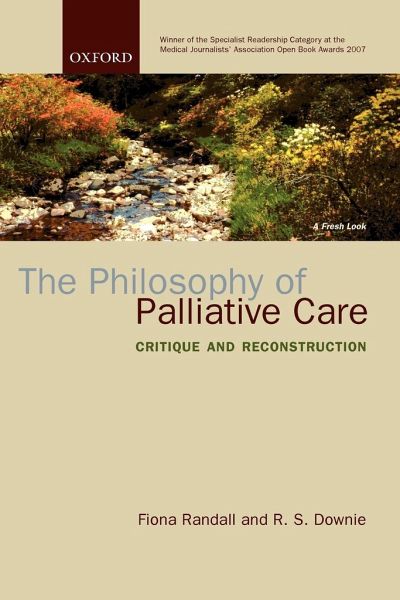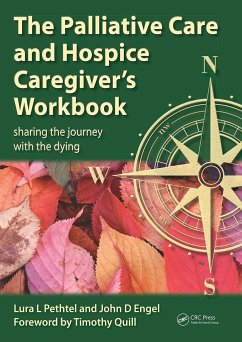
The Philosophy of Palliative Care
Critique and Reconstruction
Versandkostenfrei!
Versandfertig in 1-2 Wochen
99,99 €
inkl. MwSt.

PAYBACK Punkte
50 °P sammeln!
The philosophy of palliative care has long remained undisputed by health care professionals and philosophers. This unique book reviews the ethical problems inherent within care of the terminally ill. It suggests a new philosophy statement that could improve clinical care and take the specialty forward.
The idea of a philosophy of palliative care emerged with Cicely Saunders' vision for 'a good death', and was developed further with the WHO definition of palliative care. It is now being applied not only to cancer patients, but to all patients in end of life situations. As this 'palliative care approach' advances, it is important to pause and comment on its effectiveness. It is a philosophy of patient care, and is therefore open to critique and evaluation.
Using the Oxford Textbook of Palliative Medicine, 3rd edition as their basic reference, Randall and Downie present their argument that the palliative care approach has become too busy and over-professionalised, and that it therefore has significant weaknesses. They examine the framework of the specialty - quality of life, autonomy, dignity, patient-centredness, and the priority assigned to relatives in the remit of care - and the moral problems associated with implementing such a
philosophy. The resource implications of various health care policies are also discussed in relation to the WHO definition.
Whilst the authors defend the achievements of palliative care and those who work in the profession, they present suggestions for an alternative philosophy. Their philosophy prompts many ethical and philosophical questions about the future of palliative care.
Using the Oxford Textbook of Palliative Medicine, 3rd edition as their basic reference, Randall and Downie present their argument that the palliative care approach has become too busy and over-professionalised, and that it therefore has significant weaknesses. They examine the framework of the specialty - quality of life, autonomy, dignity, patient-centredness, and the priority assigned to relatives in the remit of care - and the moral problems associated with implementing such a
philosophy. The resource implications of various health care policies are also discussed in relation to the WHO definition.
Whilst the authors defend the achievements of palliative care and those who work in the profession, they present suggestions for an alternative philosophy. Their philosophy prompts many ethical and philosophical questions about the future of palliative care.












